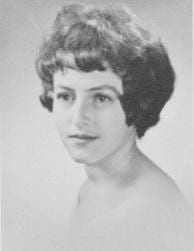Abstract
Hilary Berger Ross begins Part 1 of her 1988 interview by discussing her search for community at Pembroke College, and speaks about her experience as a city girl – a female day student who attended Pembroke but did not live on campus. She remembers Pembroke rules and studying women in Shakespeare. She explains that the birth of her first child galvanized her to feminism and specifically women’s health issues. For her, childbirth should be entirely in the hands of the woman who gives birth and her loved one. According to Ross, the medical profession wasn’t devised from a woman’s perspective at all, and because of this, hospitals expect women to accept their procedures and be a good patient rather than allowing them to experience childbirth in the way they want to.
In Part 2, she discusses founding the Women’s Health Collective to organize women around the fury that women felt in the early years of the women’s movement and to give women control over when and how they gave birth to their children.
In Parts 3 and 4, she reflects on the goals of the Women’s Health Collective and their activism process, as well as the way the organization has changed and evolved.
In Part 5, she considers her Jewish identity, activist work and her involvement with Women for a Non-Nuclear Future, the Feminist Theatre, and the Friday Group.
In Part 6, Ross discusses her run for governor, and the Tough Love organization, and concludes by reflecting on her activism, explaining that she wants to live in a place she is proud of.
Part 1
Part 2
Part 3
Part 4
Part 5
Part 6
Recorded on August 5, 1988
Interviewed by Karen Lamoree
Suggested Chicago style citation: Ross, Hilary Berger. Interview. By Karen Lamoree. Pembroke Center Oral History Project, Brown University. August 5, 1988.
Biography
Hilary Berger Ross was born in Providence, Rhode Island in 1942. She attended Pembroke College after a year at Emory University, graduating from Pembroke in 1963 with a A.B. in English literature. Directly afterwards she began to earn a M.A.T. at Brown, studying the father-daughter relationship in the tragedies of Shakespeare. Ross moved on to pursue an M.S.W. from Rhode Island College. During her last year of her Master’s program at Brown, she married Steven Salk, and upon her graduation began working as a teacher in Boston.
In 1966, her first daughter was born, spurring her to become involved in childbirth education, and she began teaching classes to give women autonomy in their childbirth and childrearing decisions. In 1973, Ross moved back to Providence, where she founded the Rhode Island Women’s Health Collective as a feminist organization dealing with women’s health issues. She also ran for governor of Rhode Island within the Citizen’s Party, went into real estate to help single women get established economically, and was part of the Women for a Non-Nuclear Future and the Tough Love organizations. In 2016 Ross published a novel, Eavesdropping in Oberammergau, based on her experience as the only child of a Jewish American military family living in post-World War II Germany for a few years during her childhood. Ross has two adult children and five grandchildren.
